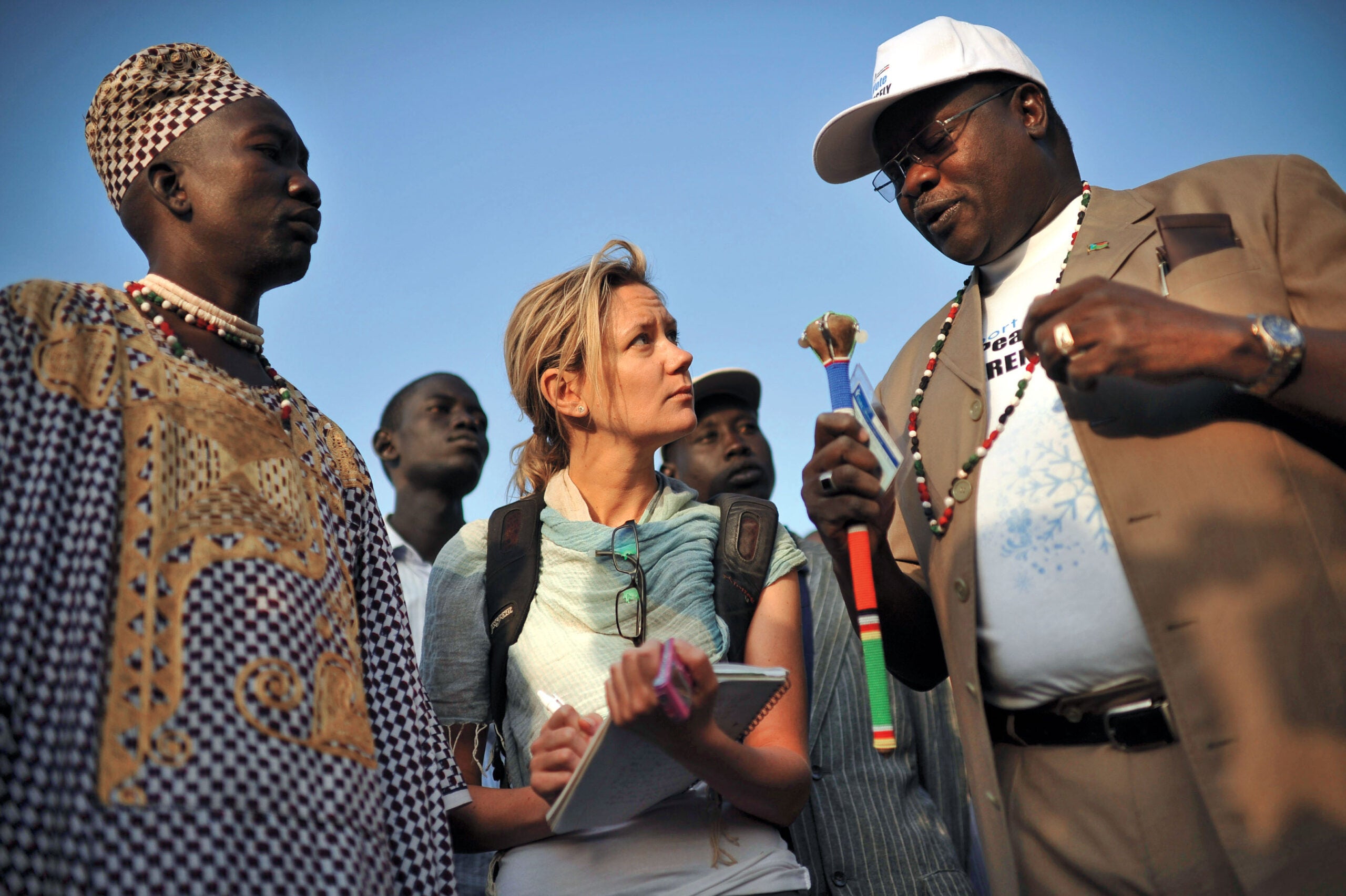Rebecca Hamilton ’07 has traveled extensively in Sudan, interviewing powerful generals in the north and refugees in Darfur who had survived murderous government raids. But that was easy, she says, compared to the delicate task of talking about the book that resulted.
“Fighting for Darfur: Public Action and the Struggle to Stop Genocide,” published early this year, is a look at the advocacy movement that Hamilton was part of and which she has now come to critique.
As a student at Harvard (HLS and the Harvard Kennedy School), she pressured the Harvard Corporation to divest from companies that supported the Sudanese government and was a driving force behind the formation of the citizens’ campaign for Darfur, the biggest social movement in the United States since the campaign against Apartheid.
But by her 3L year, she saw that although activists were making their voices heard and shaking up the political system, it wasn’t translating into change on the ground in Sudan. Hamilton took a step back to ask why. “Was it that advocates needed to do more of the same on a larger scale, or was there something wrong with the basic operating theory?” she asked. “I felt that nobody had gone and spoken to the people who were making policy behind closed doors to assess the impact of the Darfur advocacy,” she says.
That is exactly what Hamilton has done. The inquiry that began as a research paper at Harvard turned into a four-year project that takes readers into the corridors of power. Hamilton conducted 150 interviews with policymakers in the U.S. and the United Nations, as well as officials from the Sudanese government, the African Union and the Arab League. She also tells the story of four American advocates.
She highlights the movement’s successes. It got policymakers’ attention and kept pressure on elected officials to take action. But she also brings up negative consequences: “policymakers starting to spend their time responding to the advocacy community rather than doing what was actually needed to get change on the ground.”
What Hamilton finds daunting in talking about the book is conveying these lessons for the future without suggesting that citizens shouldn’t be engaged with complex foreign policy issues. “You want people to retain the hope that they can make a difference. And I think that the hope is real. I think that if people don’t speak up, then nothing will ever change. The question is how to do it most effectively.”
Part of the problem, she says, is that activists did not put Darfur in the bigger context of the overarching conflicts in Sudan: the split between the predominantly Muslim north and the Christian and animist south, and the negotiations Khartoum had agreed to under international pressure.
This was a problem for the U.S. government as well, she says, adding that this divided attention buys into the Sudanese government’s strategy. For example, says Hamilton, taking advantage of world attention being focused on the split between the north and the soon-to-be-independent south following a self-determination referendum in January, Khartoum has stepped up bombing in Darfur.
Sudanese people she has interviewed, says Hamilton, urge American activists and government officials to stop jumping on the crisis point. “Their argument is that we would all be much better off if you would put the floodlights on the whole country and look at how interconnected these conflicts in Sudan are,” she says.
In the end, Hamilton believes that the activist movement wasn’t able to achieve results in Darfur because it was “based on a theory of change that was out of date.” The lesson after Rwanda, she notes, was that “if the American public just created enough of an outcry, Washington would act, and it was Washington that had unparalleled global influence to get change on the ground.” But after the invasion of Iraq, she says, U.S. power was greatly diminished, and other actors such as China were the more influential players.
Hamilton says she is heartened to see people who have been involved in Darfur advocacy engaging over the conflict in Libya and not focusing on the question of genocide as they had in Darfur (another lesson of Rwanda).
“What’s at play [in Libya] are crimes against humanity, and I think it’s a signal of maturity in the activist movement that they now don’t have to have something labeled as ‘genocide’ before they understand it’s something important to engage with.”
